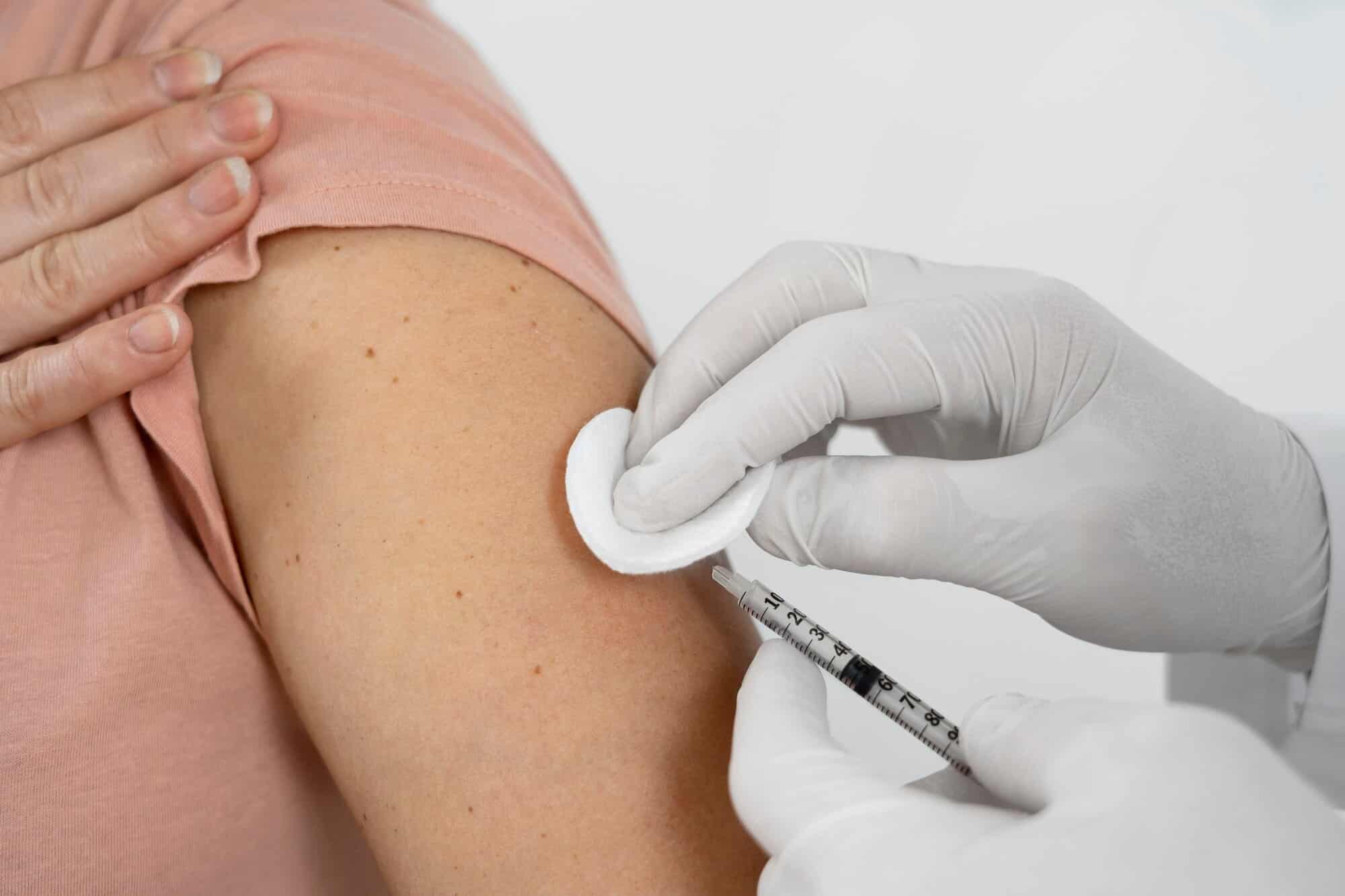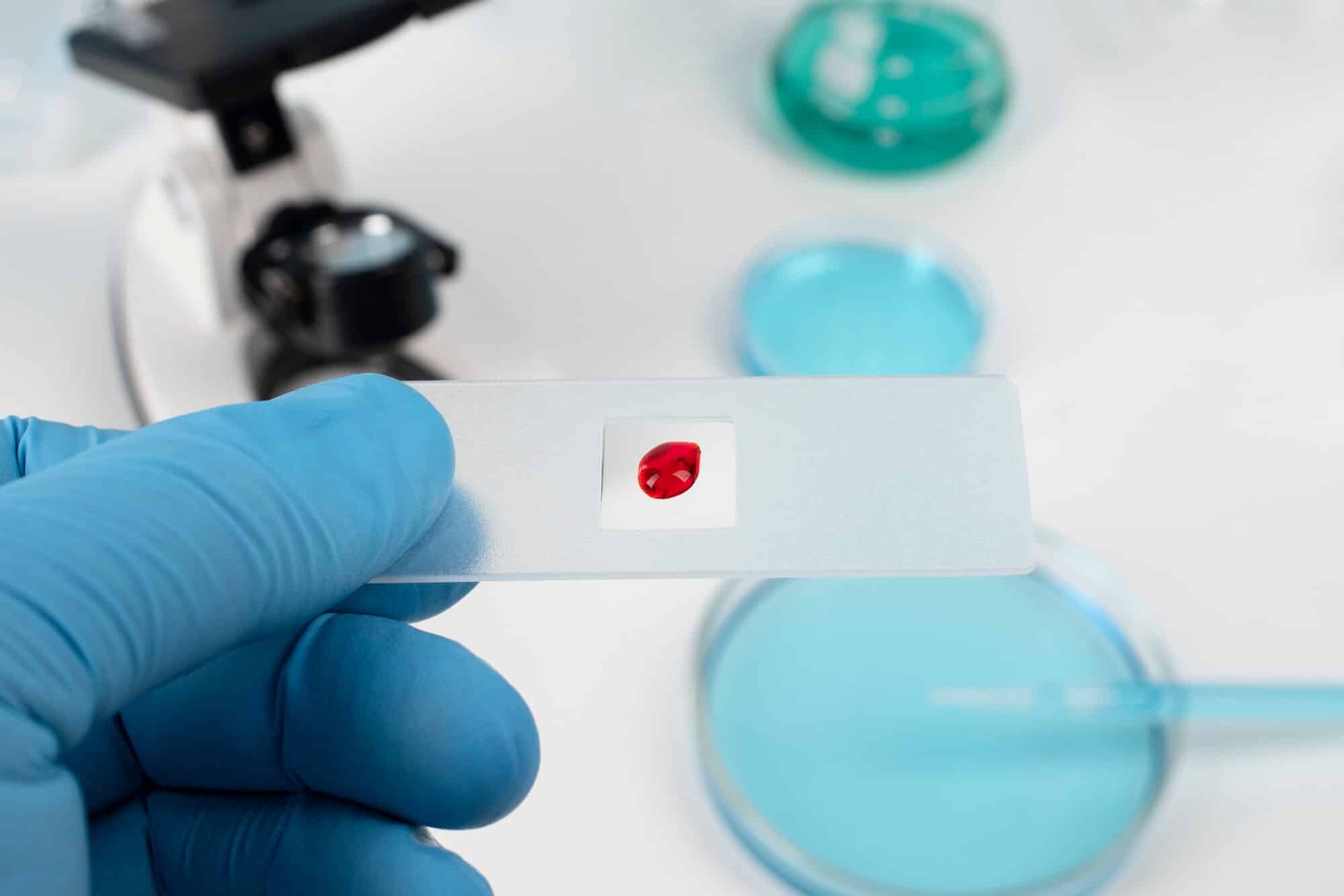
You can enjoy a healthy sex life even with genital herpes. However, to do so, it is important to be informed and practice safe sex and open communication with your partners. Although avoiding sexual contact during a herpes outbreak is important, many intimate activities are still possible if partners understand the situation. With medication and the right information, herpes is very manageable. Let’s explore how to identify symptoms of herpes, tips for managing the condition, and ways to enjoy a satisfying sex life while living with this common viral infection.
What is Genital Herpes?
Genital herpes is a sexually transmitted infection caused by the herpes simplex virus (HSV). There are two main types – HSV I, which commonly causes oral cold sores, and HSV II, which is the typical cause of genital herpes. However, both viruses can cause either oral or genital infection. Genital Herpes is one of the common types of STI.
Genital herpes leads to periodic outbreaks of sores or blisters in the genital and anal region. These sores heal, but the virus remains, allowing outbreaks to potentially recur later on. There are medicines that can help with sore outbreaks, but there is no medical treatment that completely gets rid of the virus. Using condoms when having sex can lower the chances of passing the virus to your partner but does not prevent it fully. For most people, genital herpes does not cause major health issues when properly treated and managed.
How Common is Herpes?
According to the latest data from the World Health Organization (WHO), 67% of people under the age of 50 globally carry the herpes simplex virus type 1 (HSV-1). Additionally, around 13% of the population aged 15-49 years old, approximately 491 million people worldwide, have the herpes simplex virus type 2 (HSV-2). These statistics highlight the reality that oral and genital herpes are among the most prevalent viral infections and are often unknowingly carried out due to asymptomatic spread. While manageable, there is still no cure, making herpes a highly common, lifelong condition for a vast number of people.
If I Slept With Someone With Herpes, Will I Get It?
Herpes does spread through sexual contact. The level of risk depends on whether protection was used consistently. If condoms were always used, the chances are lower than the chances of contracting herpes through unprotected sex. Herpes can potentially spread even after a single unprotected sexual encounter.
Herpes sometimes has no visible symptoms, like sores or blisters. Your partner may have had the virus without knowing it. It’s also possible for you to carry the virus without realizing it, as it can spread through viral shedding even without an active outbreak.
If you think you were exposed to the herpes virus, getting tested and speaking to a doctor is recommended. Through proper treatment, open communication with partners, and practicing safe sex, people with herpes can live normal, healthy lives. Staying informed and taking precautions is key to preventing outbreaks and transmission.
Symptoms of Herpes
Herpes is a viral infection that may cause no symptoms at all in many of the people infected with it. The first time someone has an outbreak, the symptoms are usually worse. Symptoms typically start 2 to 12 days after contracting the virus, and the number of outbreaks and how severe they are is different for each person.
Symptoms of the first herpes outbreak may include the following:
- Flu-like symptoms such as a fever, headache, and body aches
- Swollen lymph nodes in the groin area
Symptoms of recurrent herpes outbreaks:
- Small, fluid-filled blisters or sores around the genital area, anus, thighs, or buttocks (the sores may look less red depending on skin tone)
- Tingling, burning, or itching in those areas before blisters form
- Pain or discomfort when urinating
- Unusual discharge from the vagina or penis
- Itching or pain in the genital area
- Open sores or ulcers that form when blisters burst and leak fluid or blood
- Scabs that form as the ulcers heal
Herpes can still be transmitted even when there are no visible sores or symptoms. However, the virus remains most contagious during an outbreak until all the sores have scabbed over and healed completely. This healing usually takes 2-4 weeks after the outbreak begins. During this time, it is advisable to avoid any sexual contact to prevent transmitting the virus.
3 Ways to Stay Healthy with Herpes
Here are three ways to stay healthy with this condition:
1. Self-Care
Proper care of herpes sores is important to provide relief from the symptoms of an outbreak and allow sores to heal. Below are some simple yet effective ways to prevent your condition from worsening.
- Use acetaminophen, ibuprofen or aspirin for pain relief
- Apply cool, wet compresses to sores to reduce pain/itching
- For women, urinate in a tub to avoid stinging sores
- Gently wash sores with soap and water, and pat dry
- Don’t bandage sores since this restricts airflow
- Don’t pick, scratch, or irritate sores
- Avoid ointments or creams unless they are prescribed
2. Medication
While there’s no cure for herpes, prescription antiviral drugs like acyclovir can provide relief by shortening and preventing outbreaks. Some people with herpes take them continuously; others just need them during outbreaks. Very few people experience side effects. Follow your healthcare provider’s instructions carefully when taking antiviral medication. There are two common ways it is prescribed:
- Episodic therapy: Take antivirals for 7-10 days only when symptoms or an outbreak occurs
- Suppressive therapy: Take a daily antiviral medication to prevent or reduce future outbreaks
3. Prevention
Adopting healthy habits can reduce the frequency of herpes outbreaks by strengthening your immune system. Here are ways to prevent herpes outbreaks through a healthy lifestyle:
- Get plenty of sleep to strengthen your immune system
- Eat a nutrient-rich diet to support immunity
- Manage stress, as it can weaken immune defenses
- Avoid excessive sun, heat, and cold, which can trigger an outbreak
5 Tips to Have a Healthy Sex Life With Herpes
Having a healthy sex life is still possible if you have herpes. Communicating well and knowing how to manage and stop the spread of herpes can help you have a healthy sex life. Here are five tips for having safe, healthy sex with herpes:
1. Don’t Have Sex During an Outbreak
Not having sex during a herpes outbreak prevents the risk of virus transmission. The virus spreads very easily during an active herpes outbreak, and you’ll likely pass it on to your partner. Even after symptoms go away, herpes can still spread through viral shedding, so use condoms every time you have sex.
2. Communicate Openly
It’s important to tell your partners that you have herpes before having sex to maintain open communication. Talk about it first so you can make a plan together to prevent transmission.
3. Try Herpes Medication
Antiviral drugs like valacyclovir and acyclovir cannot cure herpes, but they can make outbreaks shorter and less severe. They may also lower the chances of virus transmission to a partner. But these drugs can have some side effects, so discuss them with your doctor and monitor your reaction carefully.
4. Use Protection
Using condoms and dental dams greatly lowers (but doesn’t eliminate) the risk of passing herpes between partners. Research shows that condoms significantly reduce transmission, especially between male and female partners.
5. Get Proper Treatment
The responsible way to manage herpes is to take the medication exactly as prescribed by your doctor. Have open conversations with your doctor about treatment, outbreaks, and having a sex life with herpes.
How Do Couples Deal With Herpes?
When one spouse has herpes, it is very important for married couples to talk about it openly. There’s no single right way to navigate this infection, but discussing it allows couples to make decisions together that work for their situation. Here are a couple of ways to navigate herpes with your significant other:
1. Avoiding Intimacy During Outbreaks
Couples should not have any sexual contact when herpes sores are present. They need to wait until the sores have completely healed before resuming intimacy again. This reduces the chance of the virus from spreading through direct sexual contact.
2. Using Protection Barriers
The herpes virus can spread during sex, even without visible sores. Properly using condoms or dental dams during sexual activity provides increased protection.
3. Considering Suppressive Medications
Certain prescription drugs can help suppress herpes virus levels in the body between outbreaks. This lowers, but does not eliminate, the chances of passing it to a spouse. These medications should be used along with other protective measures.
4. Taking Precautions During Pregnancy
For those with pre-existing herpes, the chances of spreading it to a newborn are low but not non-existent. It’s important to inform your doctor that you have herpes, as they may recommend medication or specific delivery methods to reduce the risk of transmission.
Conclusion
Genital herpes does not have to stop you from having healthy sex. If you take the right precautions and communicate openly with partners, you can still be intimate and safe. It’s important never to have sexual contact during an outbreak. Taking medication, practicing self-care, and living a healthy lifestyle can help reduce the frequency and severity of outbreaks. Contracting herpes requires some adjustments, but with the proper approach, you can manage it and continue having a satisfying sex life. Speak to your doctor about ways to have a healthy sex life while dealing with herpes.





